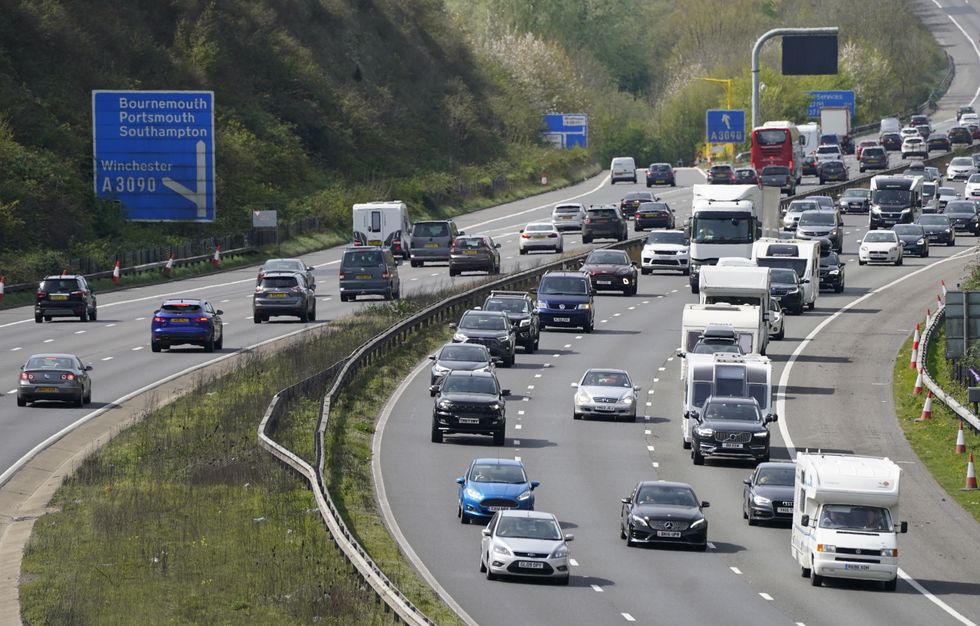Automatic brakes can help save lives
GETTY
One-third of accidents could be prevented by active braking assistance
Don't Miss
Most Read
Trending on GB News
Active braking assistance systems could prevent a third of accidents caused in urban areas, according to a recent study.
The report has now prompted experts to call for improved safety measures to protect pedestrians and cyclists in cities across Europe.
The need for more measures comes as statistics found that 70 per cent of road fatalities in cities involve pedestrians, cyclists, or motorcyclists.
In 2023, there were approximately 20,400 road deaths in the European Union. This figure falls far short of the EU's ambitious "Vision Zero" goal to eliminate road deaths by 2050.
Do you have a story you'd like to share? Get in touch by emailingmotoring@gbnews.uk

Last year 20,400 road deaths were recorded in the European Union
GETTYKlaus-Peter Roehler, a board member of Allianz SE, stressed the urgent need for better safety equipment, particularly for vans and trucks.
He said: "We're seeing rapid progress in almost all areas of technology, so why are we failing to better protect life on the roads? This is an unacceptable trajectory.
"Cities are the main hotspots for accidents. Around 40 per cent of fatal road accidents in Europe occur in cities."
But progress towards the 2050 target has been slow. The EU achieved only a one per cent reduction in road deaths between 2022 and 2023, far below the 18 per cent decrease needed to stay on track.
Allianz's analysis revealed that delivery vehicles are particularly problematic in urban areas. Vans used by parcel services have a 20per centhigher claims frequency than conventional vehicles and are more likely to cause personal injury.
Roehler criticised the lack of safety systems in vans compared to cars, despite upcoming EU regulations. "At least, vans should have the same safety systems as new passenger cars since they are using the same highly frequented urban roads," he stated.
For heavy goods vehicles, Allianz argued that warning systems are insufficient. Roehler emphasised, "Effective systems can identify road users in the blind spot and immediately trigger emergency braking."
The Allianz study found that one-third of accidents between trucks and pedestrians or cyclists could be prevented by active braking assistance and improved driver visibility.
Allianz has put forward three specific demands to improve safety for vulnerable road users.
Firstly, they call for vans and trucks to have safety equipment exceeding current legal standards, including systems comparable to those in passenger cars.
Secondly, Allianz advocated for EU-wide harmonisation of regulations, urging lawmakers to mandate advanced driver assistance systems for all new trucks. These should include active braking systems that can detect and respond to road users in blind spots.
Lastly, the insurer emphasised the need for comprehensive data-sharing as outlined in the EU Data Act.

one third of accidents could be prevented by active braking assistance
PAThis would enable Allianz to offer risk-based rates and incentives based on installed and activated safety systems.
Roehler explained: "First and foremost, our efforts to improve road safety are about saving lives and reducing pain and suffering."








